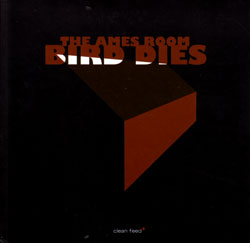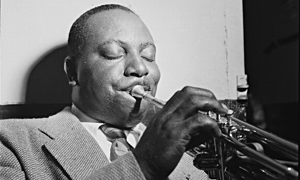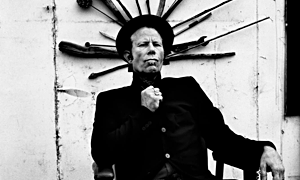Home » Jazz Articles » Book Review » Clark Terry with Gwen Terry: Clark - The Autobiography o...
Clark Terry with Gwen Terry: Clark - The Autobiography of Clark Terry
 Clark: The Autobiography of Clark Terry
Clark: The Autobiography of Clark TerryClark Terry with Gwen Terry
Hardcover; 344 pages
ISBN: 9780520268463
University of California Press
2011
There are many sad stories in jazz. Cornetist Joe Oliver lost his embouchure and ended up working as a janitor in a pool hall, singer Billie Holiday was arrested on her deathbed, trumpeter Lee Morgan was killed on stage by his enraged common-law wife—and that's just the tip of the iceberg. In contrast to the sorrowful histories that many jazz fans have come to expect, the autobiography of trumpeter and flugelhornist Clark Terry is an enormous treat: Terry has led a long, rich life, and if the nine pages of awards listed at the end of the book are any indication, his great talent and enormous contributions to jazz have been duly recognized, including receiving a Lifetime Achievement Award at the 2010 Grammys. That's not to say that Terry didn't suffer through hard times: he did, and that's what makes his story even more remarkable.
Born in 1920 in St. Louis, Missouri, Terry was the seventh of eleven children. His mother died young, and the family grew up poor: at one point Terry, his father, and seven of his siblings lived in a three-room apartment with no electricity or running water, and sometimes the only underclothes available to Terry was a pair of his sister's hand-me-down flowered bloomers. The emotional situation at home was no better: his father was an angry, complex man who used to beat Terry regularly, and kicked him out of the house when he was only twelve.
But from an early age, music provided a light. With his best friend Shitty, Terry constructed his first trumpet from junkyard scraps, until eventually his neighbors (including the jovial Mr. Butt) chipped in and got him a real instrument. His brother-in-law Sy was a musician, and he freely gave Terry lessons and encouragement whenever he was in town. Terry practiced constantly, and he paid his dues the old school way: his first significant job was playing with a traveling carnival, which once included making a 750-mile trip in the back of a truck with nine monkeys.
Terry's career started to take off when he got a gig with the legendary pianist and bandleader Fate Marable, and as his career unfolded over the decades, he played with the full roster of twentieth-century jazz greats. Highlights of Terry's illustrious career include working with pianist Count Basie, eight years in pianist Duke Ellington's orchestra, introducing the flugelhorn as a jazz instrument, breaking racial barriers as the first black musician hired by NBC in 1960 (which led to a twelve-year stint on The Tonight Show), organizing his own big band, and the creation of his beloved alter ego, Mumbles.
Terry is also one of the great jazz educators of our time. When he was twenty years old, he brushed off an eager young trumpeter named Miles Davis, and when Davis later chastised Terry for this rebuff, Terry vowed to make himself available to the younger generation. He managed to do so while touring (including giving trumpet lessons to producer Quincy Jones when Jones was a teenager), but in 1971 Terry put teaching at the center of his life, and since that time he has worked with thousands of students, including saxophonist Branford Marsalis and trumpeter Byron Stripling.
From the first page, Terry's unpretentious, down-to-earth voice is captivating, and his memory for dialogue and sensory details brings to life the great figures of jazz, whether he's talking about playing softball with singer Ella Fitzgerald, or going with fellow trumpeter Dizzy Gillespie to visit Louis Armstrong at his home in Queens. What also sets this book apart is the fact that Terry is inspirational not just as a musician, but as a person. He is a deeply thoughtful man who worked hard to learn from his mistakes, and even in the darkest of times Terry never seems to have lost sight of his moral compass.
Perhaps the saddest story in jazz is when great musicians don't get a chance to share their unique history. How fortunate that Terry (with help from his second wife, Gwen) has created such a lively, memorable book, a work that will allow subsequent generations access to one of jazz's great figures, as well as a fine human being.
Tags
Clark Terry
Book Reviews
Florence Wetzel
United States
Joe Oliver
Billie Holiday
lee morgan
Fate Marable
Count Basie
duke ellington
Miles Davis
Quincy Jones
Branford Marsalis
Byron Stripling
Ella Fitzgerald
Dizzy Gillespie
PREVIOUS / NEXT
Support All About Jazz
 All About Jazz has been a pillar of jazz since 1995, championing it as an art form and, more importantly, supporting the musicians who make it. Our enduring commitment has made "AAJ" one of the most culturally important websites of its kind, read by hundreds of thousands of fans, musicians and industry figures every month.
All About Jazz has been a pillar of jazz since 1995, championing it as an art form and, more importantly, supporting the musicians who make it. Our enduring commitment has made "AAJ" one of the most culturally important websites of its kind, read by hundreds of thousands of fans, musicians and industry figures every month.



























